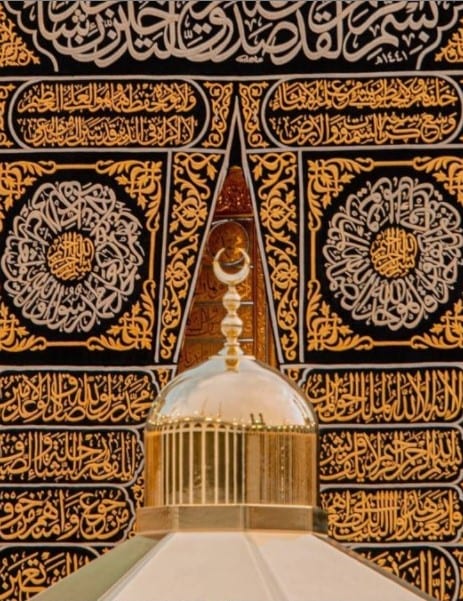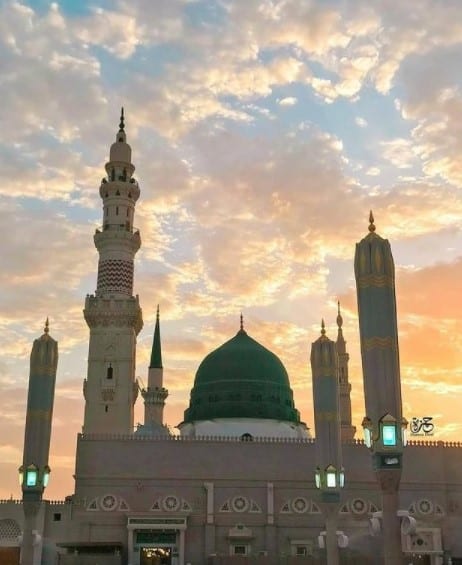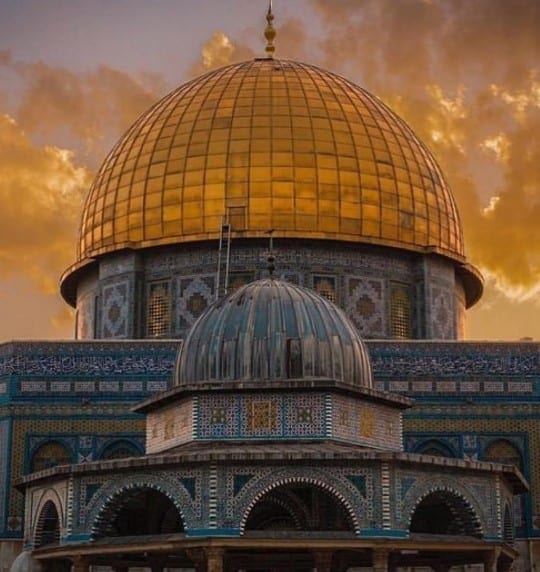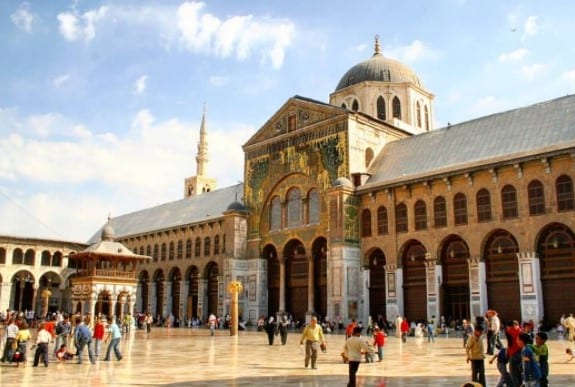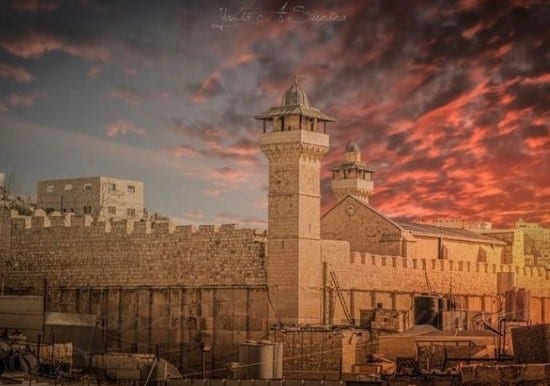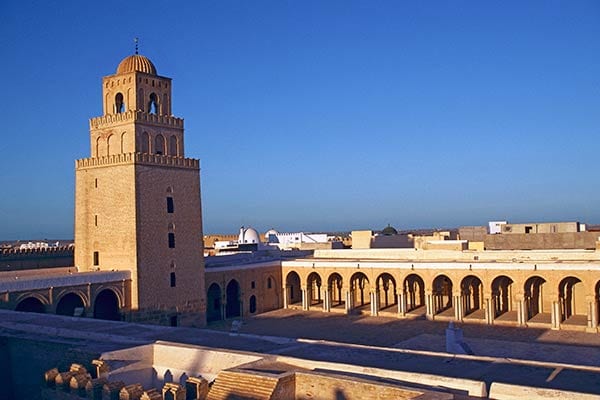Most important mosques: A mosque is a discreet place for Muslims to recreate pure beatific vision on earth, and it serves as a very symbolic place for them. The mosque’s primary role is to provide a place where Muslims can gather for prayer. Moreover, mosques are recognized worldwide for their architecture and, more particularly, for their general vitality for the Muslims.
More than just a place of worship, the mosque plays an important and authoritative role in Muslim cultural and political life, with immediate social ramifications. Mosques are the heart of Islamic life, instilling Islamic ideals in Muslims who learn to embody Islamic cultural and religious principles and live as true Muslims.
What are The Most Important Mosques for Muslims?
Some mosques are often used as gathering places for Muslims to address things related to religion and also for religious education. It is not only a place for praying but also the heart of the religion and the site of many popular pieces of Islamic art.
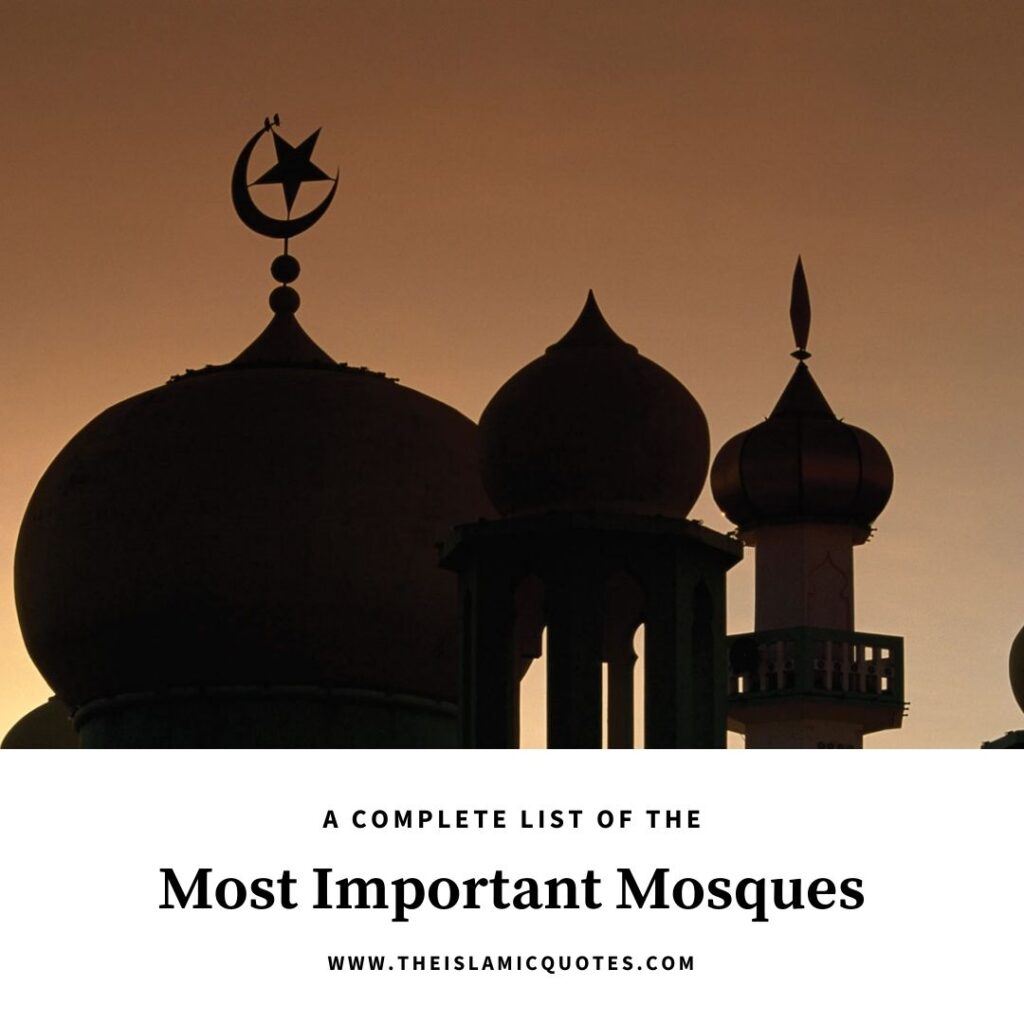
Here are some of the most important mosques in Islam:
# 1 – Masjid al Haram
Masjid al Haram is the world’s largest mosque. It is located in Makkah and surrounds the Kaaba, which is Islam’s holiest site and to which Muslims from all over the world turn while offering regular prayers. The Grand Mosque is another name for the mosque. The Mosque was first constructed by angels before the creation of mankind.
According to Islamic tradition, when God ordained a place of worship on Earth to represent the house in heaven known as al-Baytul-Ma’mur means the place where angels worship. Then, Prophet Ibrahim built the mosque when he came to Makkah. The Mosque has been destroyed by floods many times and had to be rebuilt. If you’re planning a visit there, I highly recommend that you go through these Things That You Must Do In Makkah.
# 2 – Masjid al Nabwi
Masjid al Nabwi is Islam’s second holiest mosque and the world’s second-largest mosque, after Mecca’s Masjid al-Haram. It is the Prophet Muhammad’s final resting place. It was constructed next to the house where the Prophet stayed after he migrated to Medina.
Over the years, subsequent Islamic rulers continued to expand and embellish the mosque. Under King Fahd’s reign, the mosque was greatly expanded, allowing it to accommodate a large number of worshippers and pilgrims while also introducing modern conveniences such as air conditioning. He also added twenty-seven moving domes to Masjid Nabawi’s roof. Here’s a list of The Best Things to do in Medina for a Memorable Trip.
# 3 – Masjid e Aqsa
Al-Aqsa Mosque is one of the world’s largest and most important mosques, as well as the oldest in Palestine. The Prophet Ibrahim, peace and blessings are upon him, founded or ordered the construction of Al-Aqsa. During the conquests of Jerusalem, it was destroyed.
The first to restore Al-Aqsa was Umar Ibn Al-Khattab. It is thought to be the exact spot where the Prophet (saw) was ascended into the heavens on Al-Isra’ wal-Mi’raj, a spot located in the heart of Al Aqsa Mosque. The Western Wall of the Mosque, known to Jews as the Wailing Wall, is thought to be the last remnant of the Second Temple, although Muslims refer to it as al-Buraq Wall, believing it to be where the Prophet Muhammad tied al-Buraq, the animal on which he ascended to the sky and talked to Allah.
# 4 – Ummayad Mosque
The Umayyad Mosque, also called the Great Mosque of Damascus, is one of the world’s oldest and largest mosques, situated in Damascus’ old city. The Umayyad Mosque in Damascus was one of the first ancient structures designed in Islamic architecture.
This mosque is significant in Islam because of historical and eschatological accounts and events associated with it. The mosque was constructed on the site of a Christian basilica dedicated to John the Baptist, who is revered as a prophet by Christians, after the Muslim conquest of Damascus in 634.
# 5 – Hagia Sophia
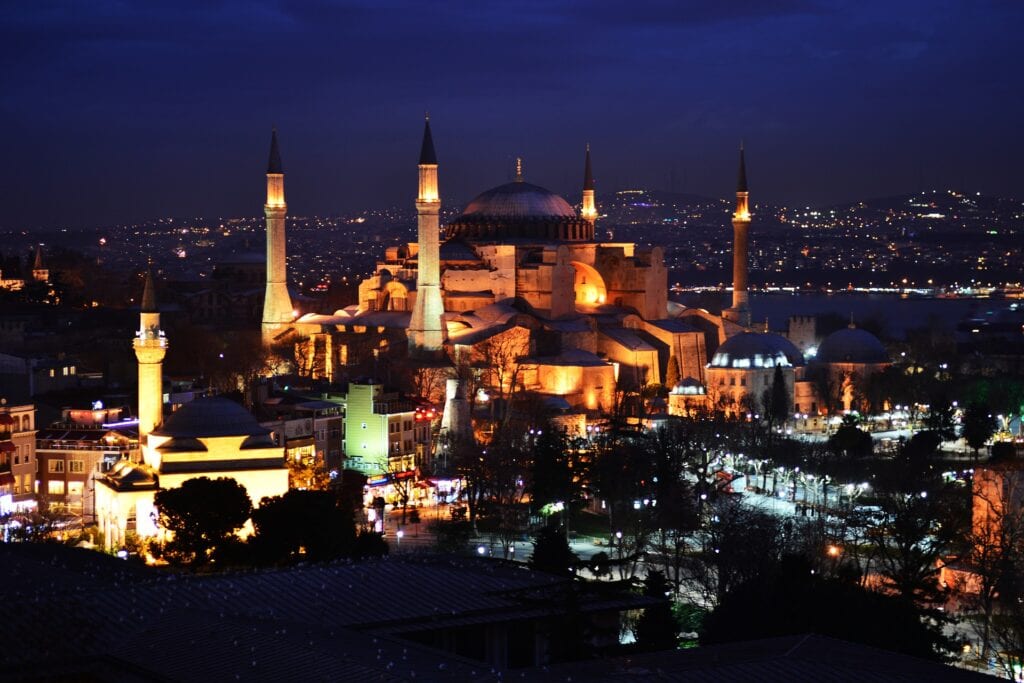
When the Ottomans conquered Constantinople in 1453, Hagia Sophia, which had been founded as a Christian Orthodox church and had served that purpose for centuries, was converted into a mosque. Conversion of places of worship after the conquest was the practice until recently.
As Rome converted to Christianity, Roman temples became churches, and when Spain was reconquered, many mosques became churches. In 1928, the Hagia Sophia’s previous incarnation as a mosque came to an end. It was turned into a museum in 193.
In July 2020, Turkish President Recep Tayyip Erdogan signed a presidential decree reopening the Hagia Sophia as a place of prayer and worship and converting it back to a mosque. The Azaan has been resonating from Hagia Sophia’s minarets since its conversion to a mosque. If you like traveling, do go through these Halal Destinations & Top 10 Muslim Countries You Should Visit.
# 6 – Ibrahimi Mosque in Palestine
The Tomb of the Patriarchs, also known to Muslims as Ibrahimi Mosque, is the main attraction in Hebron for most tourists (Ibrahim is the Muslim name for Abraham). Both Muslims and Jews revere the site; hence separate prayer spaces for each. The cave below, which resembles painted tents, is the location that both Jews and Muslims believe Abraham chose as his family’s final resting place.
Founded by Herod (note the Herodian stones at the base of the walls), the complex was altered in the 6th century by the Byzantines, who added a church and a temple beside it. The church was converted to a mosque when the Arabs occupied the city in the following century, but the temple remained intact.
# 7 – Eyup Sultan Mosque
During the Arab attack and siege of Constantinople, Abu Ayub Ansari, a friend of the Prophet who died in battle outside the city’s walls while bearing the banner of Islam, is said to be buried here.
Sultan Mehmet II intended to construct a grand Mosque to mark the site of Ayub’s grave, which was discovered outside the city walls shortly after the Conquest. For Muslims, this is the fourth holiest site in the world, after Makkah, Medina, and Jerusalem.
# 8 – The Great Mosque of Sidi-Uqba/Kairoun
The majestic building, which dates back to 670, is Africa’s oldest Muslim Mosque. Sidi Uqba, the founder of Kairouan, founded it (the mosque is also known as the Sidi Uqba Mosque). The Great Mosque of Kairouan has long been a pilgrimage site for North Africans unable to make the long journey to Mecca. According to history, seven trips to Kairouan are equivalent to one hajj to Makkah.
Conclusion
During Prophet’s time, both men and women were partners in society, especially within the mosque’s institution. They took part in prayers, social gatherings, as well as administrative and educational tasks. Women also demanded that they be scheduled to meet with the Prophet on a particular day.
Mosques must attract, or at the very least accept, youth and children to encourage them to engage, learn, and appreciate the mosque’s atmosphere and teach them proper social behavior and reverence for their elders. There is no better example than the Prophet, who allowed children to participate in mosque activities. Finally, if mosques continue to play the unique position they once did in the past, they can be regarded as distinct institutions around the globe.

